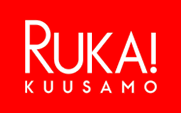– This is a nice job as I always meet happy people. I doubt anyone would be grumpy while on holiday, laughs Tomi Nevanperä who operates as a ski resort employee.
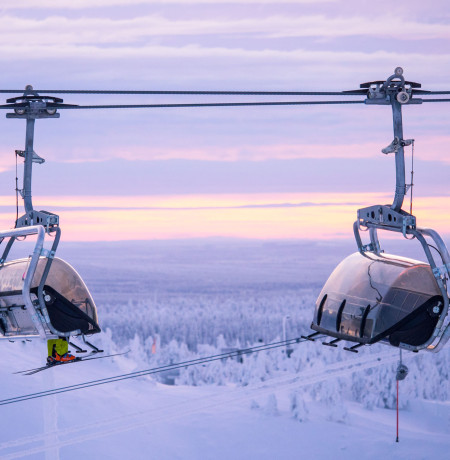
Customer service at Ruka’s lifts
Tomi Nevanperä returned to his roots in Koillismaa after spending ten years elsewhere. A job was found at Ruka.
Tomi has worked at Ruka for five winters, from the beginning of the season to the end, i.e. Depending on the autumn weathers from November to around the beginning of May. He found work the very next autumn after returning home from his “fast-paced years”.

His work location varies according to shifts from different anchor lifts to chair lifts. Tomi’s work description involves customer service and lift maintenance, as well as assistive repair duties and assisting in arrangements during competition weekends.
– The work shift at the anchor lifts always starts and ends with pushing snow and getting places ready, so that customers can safely access the lifts and the employee working the next shift can start his/her work as easily as possible. The chairs of newer chair lifts are stored in a warehouse overnight, and the chairs are moved back in the mornings and prepared for use.
The lift work force is formed of employees of different ages and with various education backgrounds. There are students among them, who work during the weekends and holidays, others who have started working immediately after graduating, as well as seasonal workers who return year after year, and full-time workers, who work all year round.
– The most important characteristic in this work is accuracy. A certain instinct is formed, and dangerous situations are learnt to be recognised. Whether a child is too short to use the chair lift or whether getting on to the lift looks unstable, emphasises Tomi who has assisted thousands of lift uses.
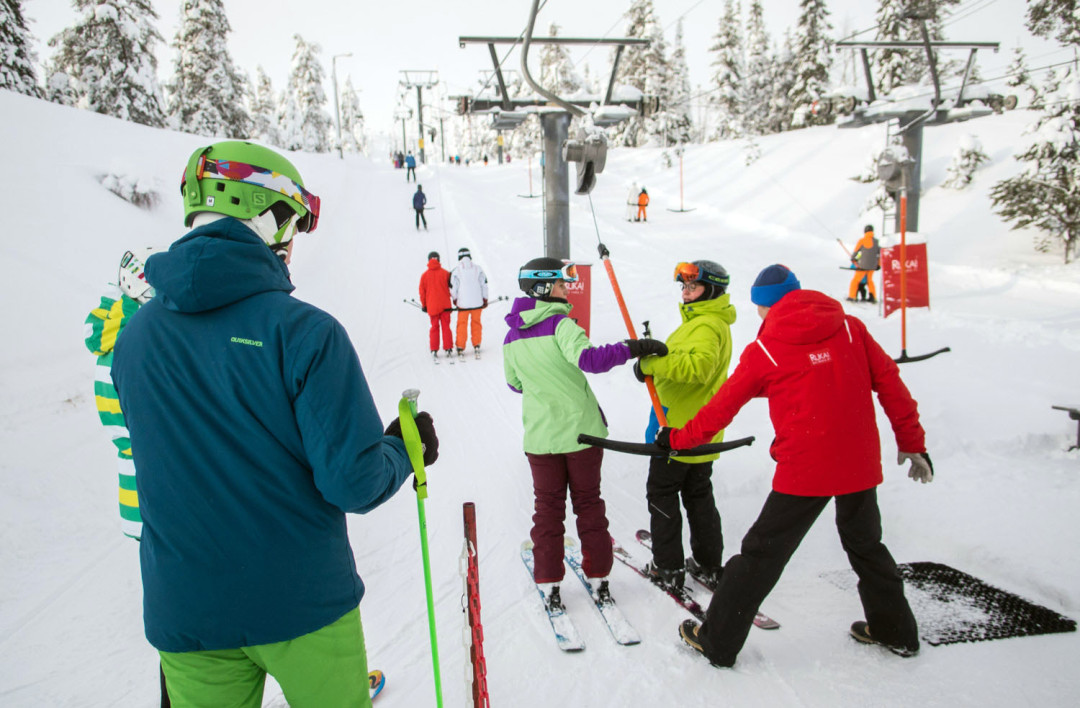
Familiar faces
The faces of Ruka’s returning customer have become familiar over the years.
– Young lads have doubled in length during my own work history. They have been at Ruka almost like in day care, when they came to the slopes after school and during the weekends practically lived here, Tomi laughs.
The faces and names of many customers who hold season passes can be remembered - one or the other. There is also one English family that I remember in particular:
– They fell in love with Ruka’s landscapes during their Christmas break so much that they returned two more times during the same season. It is quite amazing to see how children, who have never seen snow before, learn to downhill ski in no time at all, Tomi reminisces.
According to Tomi, good language skills and an extrovert attitude is useful in work at a ski resort:
– I manage quite well with English, but for example Russian would be useful. Young Russians speak English well, but the older Russians either don’t have the skills or do not want to use English.
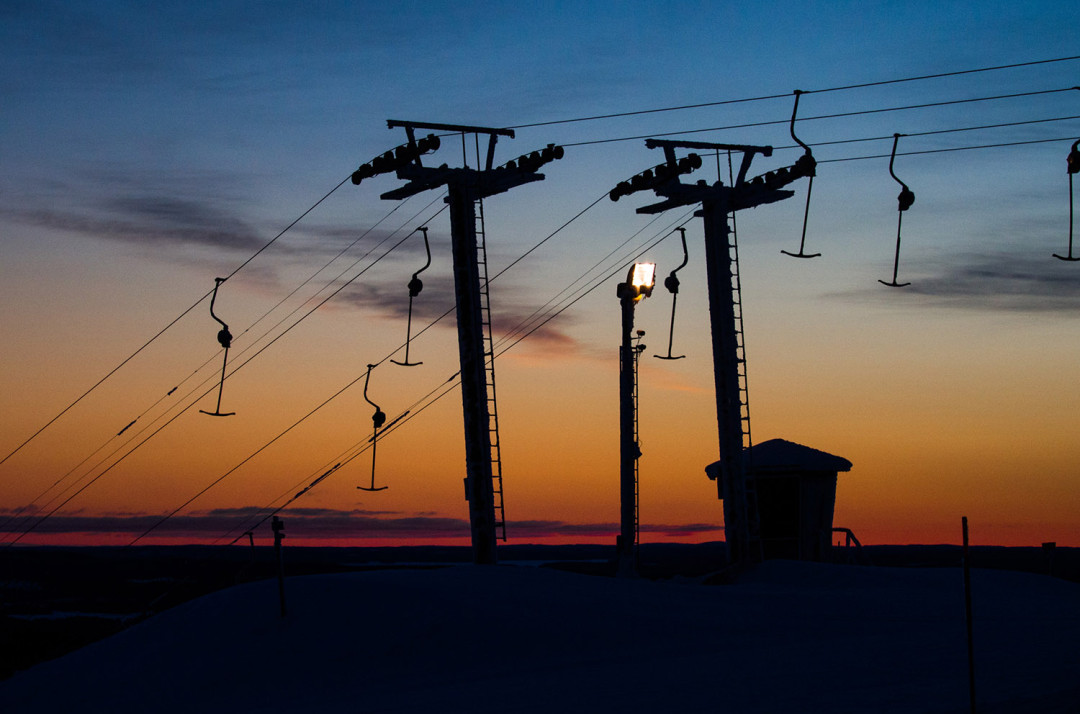
One big family
According to Tomi, new employees are welcomed to the work and work community in an excellent manner. The first days involve orientation and practice.
– And there is no need to worry, whether you will get to know people and cope here. There are so many new faces at the fell each year, so there is help and company for all sorts of things, Tomi promises.
The employees at Ruka Ski Resort are provided a season pass to the slopes as an employment benefit, as well as the opportunity to try out new sports at ski schools that are organised every month. A lot of joint activities are also organised by the employer.
– I also go downhill skiing quite a lot during the season. Last season was so busy that I didn’t have time to take on the slopes as often as I would have wanted to, but I try my best to go every now and then, when my daughter who lives in Southern Finland spends her winter holidays here.
There is a good communal spirit at work, the employees’ wishes are heard and promoted in weekly meetings. Tomi says that he has enjoyed himself at Ruka and says he also meets his colleagues outside working hours.
– The work is not too demanding, the colleagues are friendly and the leisure time activities are excellent.
Tomi finds the housing situation at Ruka challenging, because the apartments are expensive and there aren't many of them.
– I have solved this problem by living further outside Ruka. My commute is 120 kilometres each day, but I set aside an hour in the morning and an hour in the evening for commutes.
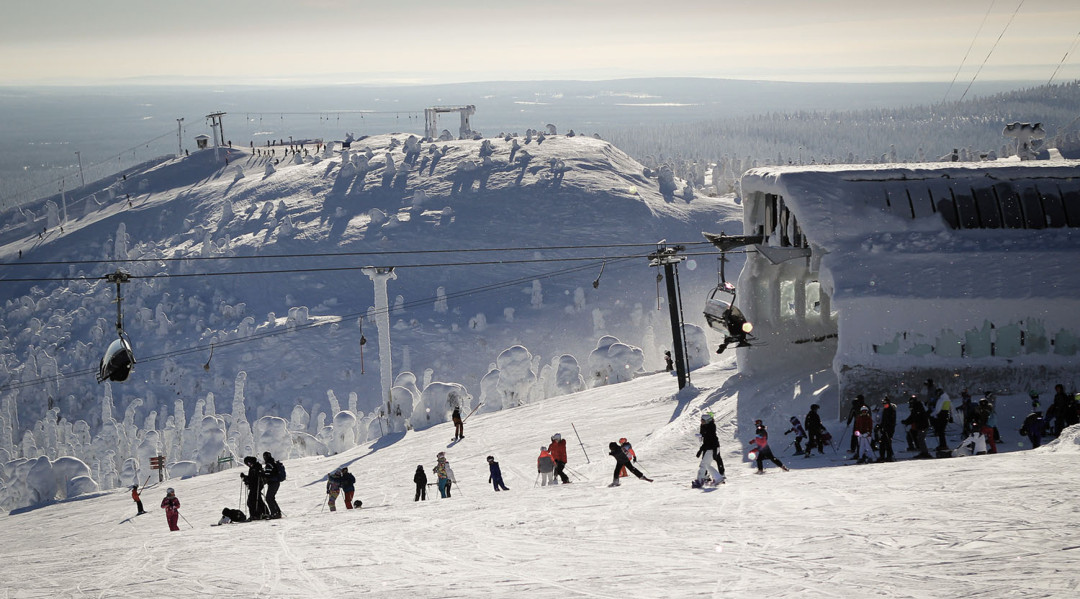
Stunning tan as an employment benefit
– Everyone probably likes spring - it doesn’t seem to be a problem for anyone - but in December and January, you really have to enjoy outdoor work, Tomi laughs.
– I don't find weather to be a problem. The season is over surprisingly quickly. Almost as soon as the autumn has started, it is already Christmas, the Russian tourists come in January, and soon it is time for winter holidays, Easter and May Day.
The diversity between work days is what Tomi finds to be the best part of the work.
– Although it is cold in January, after the springtime sunshine I am just as tanned as I would be, if I had spent a month at the Canary Islands, the seasonal worker laughs joyfully.
According to Tomi, the variety of work is also the job’s main challenge, because focus on the work must be maintained even during quieter moments. When work has been done for so many years, it is said that work issues are built in to you. Many surprising matters have also become familiar over the years.
– For example, larger competition events bring lots of reporters here, so I have got used to questions. The most difficult so far was, at what time the ski tracks are lit daily, Tomi Nevanperä laughs.
We found an answer for that question too.
Published: 13.7.2018
Text: Titta Vilpa/Kuulu Oy
Photos: Tomi Nevanperä, Veera Vihervaara, Salla Karhumaa, Rukakeskus Oy
Searching for a job at the ski resort?
If you are interested in working at Ruka Ski resort, please send your open application to rekry@ruka.fi.
